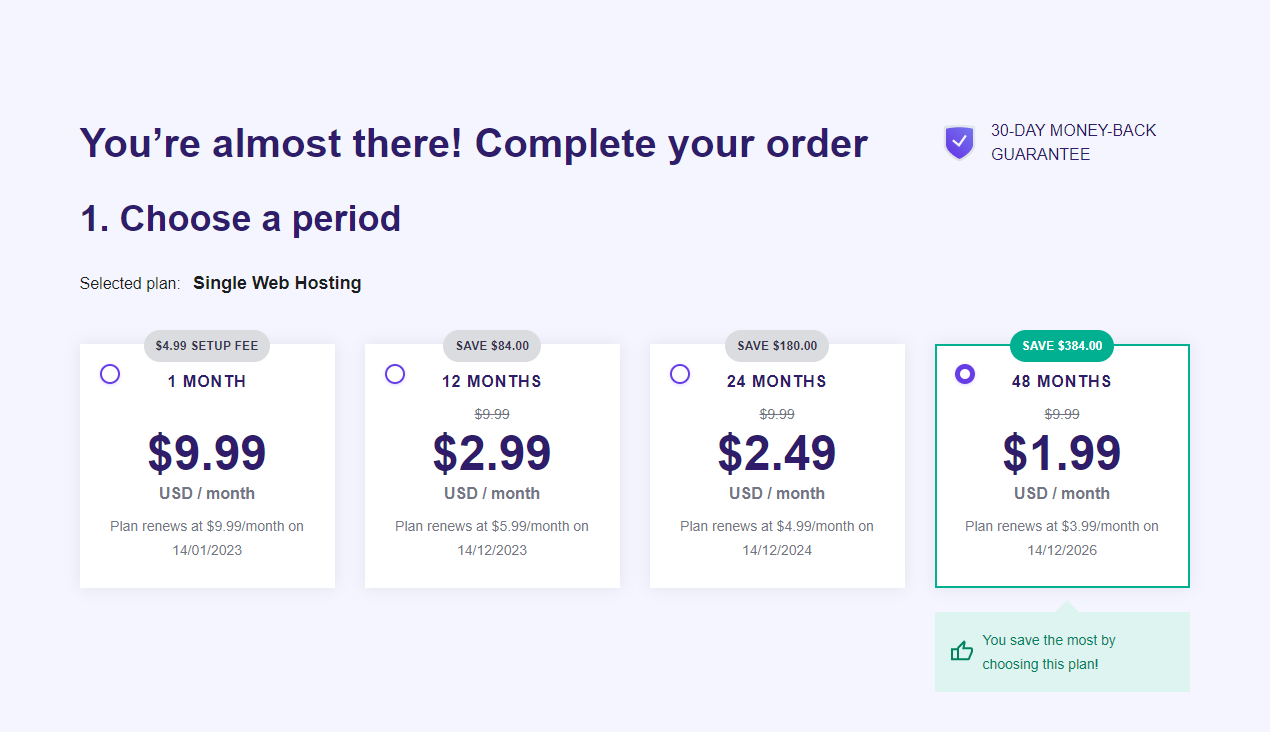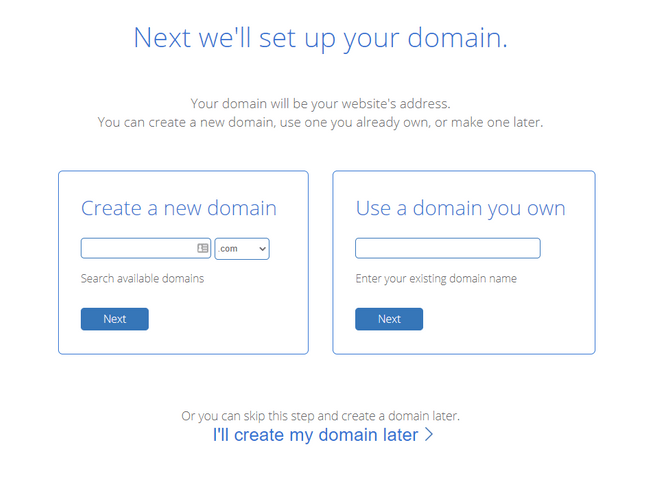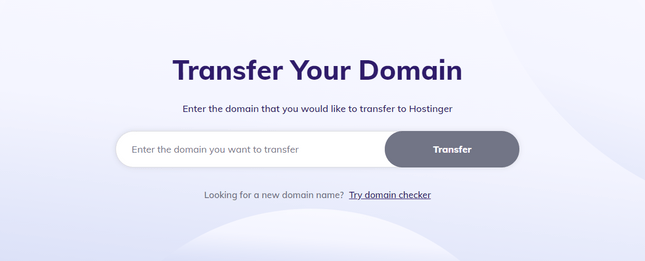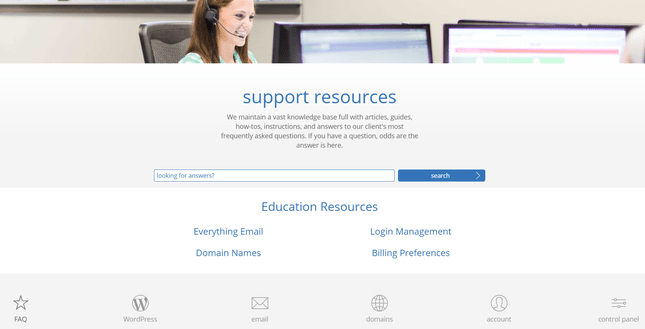Our Honest Hostinger vs Bluehost Comparison: Which Is Best for You in 2024?
If you click to purchase a product or service based on our independent recommendations and impartial reviews, we may receive a commission. Learn more
Choosing the right web host is crucial to the success of any website. Whether you’re starting a brand new site or looking to switch from a different provider, this comparison will help you decide whether Hostinger or Bluehost is the best web host for your needs.
Bluehost’s more impressive 4.8 out of 5. With its incredible WordPress hosting, and not to mention its great value plans, Bluehost came out as the best overall web host in our testing!
We’ve carried out in-depth research into the top providers on the market, so we’re in the perfect position to guide you through the pros and cons of Hostinger and Bluehost. We’ve analyzed their features, value for money, uptime, types of hosting offered, and more, meaning we can give you confident recommendations about which host is best for you. Let’s get started!
| Hostinger | Bluehost |
| Overall rating 4.1 | Overall rating 4.8 |
| Starting from
$2.49 + 3 months free (with the 48-month plan) | Starting from $2.95 |
| Uptime 99.99% | Uptime 99.98% |
| Money-back guarantee 30 days | Money-back guarantee 30 days |
| Free backups | Free backups |
| Free domain | Free domain |
| Storage space 30GB – 200GB | Storage space 10GB – Unlimited |
| Visit Hostinger | Visit Bluehost |
Hostinger is best for users on a budget...
If you need a hosting provider that isn’t going to break the bank, Hostinger is the one for you. Its prices start at only $2.99 per month when paid annually, making it ideal for users who want something cheap and who aren’t worried about too much downtime. There are also cloud hosting plans, which Bluehost doesn’t offer.Bluehost is best for those who want a beginner friendly service...
Bluehost is the #1 hosting provider recommended by WordPress itself, so we highly recommend it for those already planning to use WordPress. Because it deals with a lot of first-time WordPress users, Bluehost’s customer support is top-notch, making it perfect for beginners. It also offers dedicated hosting plans for those who want something beefier.Hostinger Vs Bluehost: Quick Summary
| Hostinger | Bluehost | |
|---|---|---|
| Ease of Use Winner: Bluehost | Hostinger isn't as simple to use as Bluehost, especially not with WordPress. | Bluehost makes onboarding simple with in-depth WordPress guides and a simple to use control panel. No wonder it is WordPress's #1 recommended hosting provider. |
| Features Winner: Bluehost | Hostinger is practically equal with Bluehost for features overall. | Bluehost's shared hosting may be weaker than some, but it more than makes up for it in VPS hosting and WordPress integration. |
| Pricing & Value for Money Winner: Bluehost | Hostinger's prices may be cheaper as a whole but unfortunately it doesn't have as good value for money as Bluehost. | Bluehost may be more expensive than Hostinger, but you get a lot more out of it, making Bluehost the better value for money overall. |
| Performance and Security Winner: Hostinger | Hostinger's better uptime and automatic backups make it the winner for this category. | While Bluehost's security is good, it is just beaten in uptime by Hostinger. |
| Migrating Domains and Websites Winner: It's a Tie! | Both providers fill a niche the other doesn't, making this category a tie. | While Bluehost wins for migrating to WordPress, Hostinger wins for non-WordPress sites, meaning neither provider comes out on top. |
| Help and Support Winner: Bluehost | Hostinger offers live chat, email and knowledge base, but no phone. | Bluehost has 24/7 phone, live chat, email and a great knowledge base for WordPress guides. |
| Are You Ready? | Try Hostinger | Try Bluehost |
Hostinger Pros and Cons
Pros
- Discounted hosting plans – Hostinger’s main attraction is its eye-poppingly cheap starting prices, which start from $2.99 per month for new users
- Multilingual customer support – Hostinger has customer support agents across the world, and offers support in many different languages
- Features – Hostinger offers some neat features depending on the plan you choose, such as email accounts, automatic backups, and a free domain
Cons
- No dedicated hosting – If you’re looking for a dedicated plan to support a large site or online store, Hostinger isn’t for you
- Lack of features on entry plans – While the entry plans are cheap, they lack some vital features, like free domains
- Value for money could be better – Despite its super cheap starting prices, Hostinger’s plans don’t offer amazing value for money, and you need to sign up for a whopping four years to qualify for its cheapest prices
Bluehost Pros and Cons
Pros
- Outstanding WordPress hosting – If you need hosting for a WordPress site, no matter the size, Bluehost is the best in the business. It’s even earned a recommendation from WordPress.org itself!
- Great value, affordable plans – Bluehost may not be as cheap as Hostinger, but its plans offer better value for money than most other providers on the market
- Helpful customer support that exceeded our expectations – We tested Bluehost’s support ourselves and found that it was timely and relevant, and satisfied our queries
Cons
- Be wary of extra costs – Bluehost automatically selects add-ons at checkout, so make sure to un-tick these before paying to avoid surprise charges. Also, the minimum contract length is one year, which is unusual!
- No cloud hosting – If you need flexible cloud hosting plans, Bluehost is not the right choice for you
- Limited storage on cheapest plans – While Bluehost tends to have more generous storage limits than Hostinger, Bluehost offers a relatively small amount compared to other web hosts
Find out more
- Read our in-depth Hostinger Review for more details on its strengths and weaknesses
- Read our full Bluehost Review instead for a more in-depth look at its pros and cons
Ease of Use
The Winner
Bluehost is easier to use
Onboarding Process
Bluehost comes with a helpful setup menu in its WordPress dashboard on how to host a website, and helps you securely change your login details from the WordPress default as part of the setup process – an important security measure that’s often overlooked by beginners.
Hostinger is also easy to get to grips with – again, it has a special focus on WordPress onboarding, providing quick and easy setup even for total beginners.
What did users say?
“Bluehost is super for beginners, who need all-in-one-solutions to create a web-presence (and email) from scratch.”
– Steffi, who uses Bluehost to host her consultancy site AcumenIST.
Setting Up (and Running) Your Website
Both Hostinger and Bluehost provide one-click WordPress installation and automatic WordPress updates. This is a huge help in getting your site live quickly, and ensuring everything runs smoothly once it’s live.
Managing your site should be stress-free with either web host – both offer free backups, provide free SSL, and come with domain management.
Hostinger provides a free domain on some of its plans, but not all.
Find out more
- See how easy it is to get started with Bluehost with our helpful guide How to Install WordPress With Bluehost
Features
The Winner
Bluehost has better features than Hostinger
As we said, it’s only by a hair’s length. These two builders are remarkably similar when it comes to features. They are both pretty generous, even on their cheapest plans.
While beginners may not need all the features Hostinger or Bluehost has to offer, they both tick a lot of techy boxes and gives you room to grow.
The real differences come in the features each type of hosting has. For example, Hostinger scores a 4.2 out of 5 for shared hosting features whereas Bluehost only has a 3.3 out of 5. But then Bluehost has 3.8 out of 5 for VPS hosting features compared to Hostingers’ 2.7 out of 5, so it does really depend on what type of hosting you need.
Let’s take a deeper dive into these types of hosting:
Types of Hosting
Both Bluehost and Hostinger provide:
- Shared hosting
- VPS hosting
- Shared WordPress hosting
- Managed WordPress hosting
- WooCommerce hosting
The main differences between the types of hosting offered by Hostinger and Bluehost is that Bluehost doesn’t provide cloud hosting, while Hostinger doesn’t provide dedicated hosting.
It’s also worth mentioning that Hostinger offers Windows VPS hosting, while Bluehost only offers Linux. Linux hosting is more popular, but if you need specific Windows applications, then Windows hosting will be a better fit.
Find out more
- In search of Linux hosting? Discover the 8 Best Linux Server Hosting Providers and see how Bluehost and Hostinger rank overall
- Not all providers offer Windows hosting. We’ve reviewed the 5 Best Windows Hosting Providers to make choosing one easier
Shared Hosting: Features
Bluehost
- Storage: 10GB – 100GB
- Monthly visitor limit: Unlimited
- Bandwidth: Unmetered
- Free domain: ✔️ On all plans
- Free backups: ✔️
- Email accounts: 5 – Unlimited
Hostinger
- Storage: 30GB – 200GB
- Monthly visitor limit: 10,000 – 100,000
- Bandwidth: 100GB – Unlimited
- Free domain: ✔️ On some plans
- Free backups: ✔️
- Email accounts: 1 – Unlimited
Bluehost includes a free domain on all its shared hosting plans, which is a great perk. Hostinger’s free backups take place weekly on its cheapest plans, and daily on its Business plan.
Both Hostinger and Bluehost tick all the key feature boxes for good quality shared hosting, but it’s Hostinger that takes the cake for the best shared hosting features compared to Bluehost. It scores 4.2 out of 5 stars for shared hosting features, while Bluehost only scores 3.3 out of 5.
Here’s what we would’ve liked to see more of:
- More storage on Bluehost’s plans for greater scalability
- A free domain on Hostinger’s cheapest plan for extra value
- More transparency from Bluehost about the frequency of its free backups for total peace of mind
Find out more
- Do you need shared hosting? Check our list of the Best Shared Hosting Providers to make sure you get the best host for your needs
VPS Hosting: Features
Bluehost
- Storage: 30GB – 80GB
- RAM: 2GB – 8GB
- Bandwidth: 1TB – 3TB
- Free backups: ✔️
- Root access: ✔️
- Dedicated IP: ✔️
- Windows or Linux?: Linux only
Hostinger
- Storage: 20GB – 250GB
- RAM: 1GB – 16GB
- Bandwidth: 1TB – 12TB
- Free backups: ✔️
- Root access: ✔️
- Dedicated IP: ✔️
- Windows or Linux?: Both
VPS hosting is more advanced than shared hosting – it’s more secure and gives you more control over your site. Root access is very important, and provided by both Hostinger and Bluehost on all VPS plans.
Bluehost is a superior VPS host, however – in fact, it’s the best VPS hosting provider we’ve tested! In our VPS hosting research it scored 3.8 out of 5 for its VPS features, compared to Hostinger’s features score of 2.7 out of 5. Bluehost also had much better support options with a customer support score of 4.5 out of 5.
Here’s what we would’ve liked to see more of:
- More storage space and bandwidth from Bluehost, so you have more room to grow
- More support options from Hostinger for beginners needing help with their VPS plan
- A cheaper entry plan from Bluehost for those on a budget
Find out more
- Compare the Best VPS Hosting Providers in our helpful list
- If you’re unsure which type of hosting you need, our Shared Hosting vs VPS Hosting might help you choose
- VPS plans don’t have to be expensive, as this list of the 10 Best Cheap VPS Hosting Services proves!
Shared WordPress Hosting: Features
Bluehost
- Storage: 10GB – Unlimited
- Bandwidth: Unmetered
- Free domain: ✔️ On all plans
- Free CDN: ✔️ On all plans
- Automatic WordPress installation: ✔️
- Automatic WordPress updates: ✔️
- Number of websites: 1 – Unlimited
Hostinger
- Storage: 30GB – 200GB
- Bandwidth: 100GB – Unlimited
- Free domain: ✔️ On some plans
- Free CDN: ✔️ On some plans
- Automatic WordPress installation: ✔️
- Automatic WordPress updates: ✔️
- Number of websites: 100 – 300
Both Hostinger and Bluehost have a real focus on WordPress users, and their features are designed to make your life as easy as possible. Automatic installs and updates are essential WordPress hosting features, and are quickly ticked off by both web hosts.
But it should be no surprise that Bluehost is simply better suited for WordPress hosting, being their #1 recommended choice and all. Bluehost actually comes first in our research for WordPress hosting with an impressive overall score of 4.6 out of 5.
Here are some things we would like to see:
- Automatic plugin updates from Bluehost to make users’ lives even easier
- More storage on Hostinger’s more expensive plans for greater scalability
- A greater number of websites allowed on Hostinger’s plans
Find out more
- Browse our review of the 9 Best WordPress Hosts to see how Bluehost ranks and why we recommend it so highly
Pricing and Value for Money
The Winner
Bluehost is better value for money
Starting Prices (Annual Plans): Quick Look
Bluehost
- Shared: $2.75 – $13.95
- Shared WordPress: $2.75 – $13.95
- VPS: $24.99 – $83.99
- Cloud: N/A
- Dedicated: $99.99 – $139.99
Hostinger
- Shared:$2.99 – $3.99
- Shared WordPress: $2.99 – $15.99
- VPS: $3.99 – $117.99
- Cloud:$9.99 – $29.99
- Dedicated: N/A
Renewal Prices: Quick Look
Bluehost
- Shared: $9.99 – $28.99
- Shared WordPress: $9.99 – $28.99
- VPS: $39.99 – $119.99
- Cloud: N/A
- Dedicated: $119.99 – $209.99
Hostinger
- Shared: $5.99 – $11.99
- Shared WordPress: $5.99 – $24.99
- VPS: $7.99 – $186.99
- Cloud: $24.99 – $59.99
- Dedicated: N/A
What Features Do You Get On Each Host’s Cheapest Plan?
Below, you can compare the key features you get with each host’s cheapest shared hosting plan.
Bluehost offers better value for money because it’s more generous with its features. Hostinger does provide a free domain, free CDN, and Google Ads credit on its more expensive plans, but not on its entry plan.
Both Hostinger and Bluehost come with a 30-day money-back guarantee so that you can try your plan risk-free, and get your money back if you’re not totally satisfied.
Hostinger is the cheaper web host overall, so if you’re on a tight budget, then Hostinger’s shared plans make a lot of sense. While its cheapest plan is actually more expensive (by about $0.04) than Bluehost, as the features increase Hostinger keeps it cheap while Bluehost’s price rises. It actually beats Bluehost in our research for shared hosting value with a score of 3.7 out of 5 to Bluehost’s 3.1 out of 5. Just watch out for renewal costs once your first term is over.
But while Bluehost can be more expensive, overall it’s just better value. In our research, Bluehost scored an overall value for money score of 4.7 out of 5, whereas Hostinger only scored 2.9 out of 5.
It’s important to note that the cheapest prices, which you see advertised on Bluehost and Hostinger’s websites, reflect each host’s longest subscription, usually around 24 to 36 months. For example, for Hostinger you need a 48-month contract for its cheapest $1.99 per month plan.
We realize this is a long time to commit to a host you only just met. That’s why we only show the 12-month prices. We feel this is the most accurate representation of the provider and a length of contract that most users would be comfortable accepting.

Hostinger also has a one-month contract on most of its plans if you want more flexibility, although this is the most expensive pricing option – for example, its VPS plans – do have monthly plans available.
Bluehost: Cheapest Plan Features
- Price per month (12-month contract): $2.75
- Storage: 10GB
- Bandwidth: Unmetered
- Number of websites: 1
- Free domain: ✔️
- Free CDN: ✔️
- Free SSL: ✔️
- Domain management: ✔️
- Google Ads credit: ❌
Hostinger: Cheapest Plan Features
- Price per month (12-month contract): $2.99
- Storage: 50GB
- Bandwidth: 100GB
- Number of websites: 1
- Free domain: ❌
- Free CDN:❌ $12.99 – $79.99
- Free SSL: ✔️
- Domain management: ✔️
- Google Ads credit: ❌
Find out more
- Read our Bluehost Pricing Review to find out more about why it offers such good value
- On a budget? Find a great deal with our list of the Best Cheap Web Hosting providers
5 Performance and Security
The Winner
Hostinger has the best performance and security
Uptime
Ideally, you want a web host that guarantees no more than three hours of downtime per year. Downtime can result in sales missed, subscribers lost, or just a general lack of visibility for your site.
Bluehost offers a 99.98% uptime, which is a downtime of only 1 hour and 45 minutes. Hostinger, however, just manages to beat that with a 99.99% uptime.
In our research, we gave Bluehost 3 out of 5 for overall uptime performance, which is decent but actually not as high as we’d like from WordPress’ #1 recommended hosting provider. This is where Hostinger actually takes the lead, as we awarded it 3.5 out of 5 for uptime performance.
But performance varies depending on the type of hosting you choose. For instance, Bluehost’s performance was better than Hostinger’s when it came to WordPress hosting, but when it came to VPS hosting, Hostinger’s score of 3.1 beat Bluehost’s lower performance score of 2.7 out of 5.
Security
Both Hostinger and Bluehost provide free SSL certificates on their hosting plans. SSL encrypts data passing between your visitors and your website, making it extra important for protecting payment information and login details.
We especially liked the focus on security during Bluehost’s WordPress onboarding. Part of your site setup includes securely changing your login details from the default option – an important security measure that’s easily overlooked by beginners.
Both web hosts regularly monitor online threats, with protective measures in place to detect attacks. Specific details on these defences are usually purposefully vague in order to stay ahead of such online nasties. That said, Bluehost is more upfront about its security – automatic security updates, backup data protection, and malware detection are all in place.
Updates and Backups – Who’s Responsible For Upkeep?
Hostinger and Bluehost run free backups for you – however, we always recommend making your own backups too. It may seem like overkill, but it’s best to be proactive about your site’s backups, so that if something does happen – whether it’s a design mishap or a security breach – you’ve got total peace of mind.
WordPress users don’t need to worry about WordPress software updates, as both Hostinger and Bluehost’s WordPress plans automatically take care of these for you. Hostinger goes a step further, automatically running plugin updates too.
Migrating Domains and Websites
The Winner
It's a tie! Both Bluehost and Hostinger are great at migration!
If you already have a website hosted with a different hosting provider, you might be wondering how easy it is to migrate your existing site to either Bluehost or Hostinger. Let’s take a look!
Migrating an Existing Domain
If you simply want to point a domain registered elsewhere to your new host, then Bluehost is super simple. As part of the signup process, you can either choose a new domain, or enter your existing domain to connect it to your new Bluehost account.

You will still have to assign the domain once you’ve set up your Bluehost account, from inside your control panel dashboard. Bluehost has a helpful guide on how to do this.
If you want to transfer a domain to Bluehost (so that it’s no longer registered with your existing domain registrar, but registered with Bluehost instead), it’s a slightly longer process. Currently, you can transfer the following domain extensions to Bluehost:
- .com
- .net
- .org
- .us
- .co
- .info
- .biz
Bluehost has a support guide that walks you through the steps of transferring an existing domain name, from updating your domain settings with your current registrar to initiating the domain transfer from your Bluehost control panel.
So, what about Hostinger? Well, instead of including domain registration as part of the signup process, you need to set up your domain in the control panel. When it comes to pointing an existing domain to your Hostinger website, there’s a detailed guide (complete with video tutorial) to walk you through the process.
You can transfer your domain to Hostinger in four simple steps. It has a dedicated domain transfer page, where you enter the domain you wish to transfer and click the “Transfer” button to get started. This is a much more user-friendly approach than Bluehost.

Find out more
- Need a helping hand? Learn How to Transfer a Domain Name to a New Host with our step-by-step guide!
Migrating Your Website
If you have a WordPress website, Bluehost is best for migrating your site because it takes care of everything for you (for free!)
Bluehost offers free WordPress migrations. Create your Bluehost account, fill out the free migration form in your Bluehost dashboard, and Bluehost’s team of experts will review your site. Once your site is approved, experts will migrate your site for you, so you can sit back and relax! Your site is assessed on factors such as the WordPress version you use, website size, current plugins, and database size, to see if the migration will work or not.
Hostinger can’t quite compete with Bluehost’s expert migrations, but it’s still pretty easy. Hostinger has a guide to walk you through the various migration options available – we recommend using Hostinger’s automatic migration tool, as it’s by far the easiest and fastest method available. You’ll find this in the Migration Requests tab in your dashboard. Once you fill out the required form, the tool will migrate your site for you for free.
You can also migrate non-WordPress sites using the same Migration Requests form in your dashboard – simply select the type of website you need to migrate. Alternatively, you can request to migrate your site during the setup process, which may be even easier.
Migrating non-WordPress sites is slightly more challenging with Bluehost. It has helpful guides to walk you through the process, but you’ll need some time to ensure you get it right. Alternatively, you can pay $149.99 for Bluehost’s professional site transfer service, where its experts can migrate up to five sites and 20 email accounts for you.
Find out more
- Do you want to switch hosting providers? We walk you through the process in our helpful guide: How to Transfer Website Hosting
Help and Support
The Winner
Bluehost has the best help and support
Support Channels: How Can You Ask For Help?
Both Hostinger and Bluehost provide:
- Knowledge center
- 24/7 live chat
- Tickets
Bluehost also provides 24/7 phone support, whereas Hostinger doesn’t currently provide any phone support at all.
When we looked at how each provider’s support fared for different hosting types, the results didn’t come out in Hostinger’s favor either. Hostinger struggled to get higher than 3.1 out of 5 across all our research categories, meanwhile, Bluehost was consistently getting scores around the 4.5 out of 5 mark.

Bluehost provides round the clock live chat and phone support, as well as email tickets and a well-stocked knowledge center. We tested its knowledge center and live chat support ourselves, and overall, Bluehost’s support exceeded our customer service expectations by 9% – the best of the four web hosts we trialled.
We were especially impressed by Bluehost’s comprehensive knowledge center. However, our users also noted the speed and quality of Bluehost’s live chat responses:
“The agent always responded with relevant and helpful information, often including links and longer replies than I was expecting. They definitely seemed knowledgeable, and in a good position to help me.”
This isn’t to say that Hostinger doesn’t have good support – it just has less. Before you sign up, you can only access a general enquiries form and the knowledge center. Once you’ve created an account, you unlock access to its 24/7 live chat, although this would be useful earlier on for answering any pre-sales questions you might have.
We like the use of video tutorials featured in help articles, and the fact Hostinger’s support team is multilingual!
Hostinger vs Bluehost: Summary
Now you know the key differences between Hostinger and Bluehost. We’ve explored features, pricing, types of hosting, performance, migration, and customer support, so you should have a good idea of which one better suits your needs.
Who Should Use Hostinger?
- Anyone on a tight budget looking for heavily discounted prices
- Users needing cloud hosting plans
- International users needing multi language support
- Windows users looking for Windows VPS hosting services
- Non-ecommerce sites where low uptime isn’t a deal breaker
Who Should Use Bluehost?
- WordPress users looking for great quality WordPress hosting
- Users needing dedicated hosting plans
- Beginners needing a thorough help and support offering
- Users wanting real value for their money
- Anyone who values reliability and performance over cheap pricing





2 comments